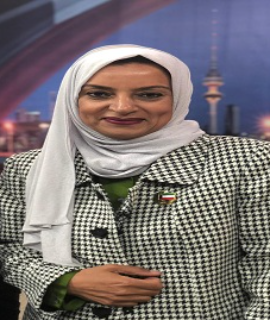Abstract:
The scope of this talk would be about registries of cancer and hematological diseases around the world and the impact on the improving the health system of countries. Registries in a developing country could be very challenging; however very rewarding to assess the services provided. We will share our experience in developing a registry of childhood cancer in Kuwait and the steps taken as well as obstacles faced during this journey. This study was conducted at the children specialty hospital at the National Bank of Kuwait (NBK) hospital, Sabah health district, which is the only center for cancer management in children in Kuwait. Since the establishment of the unit back in the seventies the patient’s’ statistics was gathered by personal effort of the doctors of the unit and it was not official, and some of these data was gathered by Kuwait cancer control registry center which is basically adult service. There is an estimate of 120 new cases are received every year, and currently there are more than 800 children on regular follow up at NBK children hospital; receiving children with cancer from birth to 16 years. The objective of this study was to addresses the need to have a separate national registry for children with cancer, in order to follow the international statistics and improve the services provided at NBK children hospital. This study used a prospective/cross sectional / retrospective method. This project started in May 12th 2016. A data sheet form which contained patient biography, investigations, clinical course, complications, and outcome of cancer in children was designed. The inclusion criteria were all children with cancer were included in this registry, and the exclusion criteria were children presented with benign diseases. Data was collected from the files of the patients with leukemia who received treatment in the NBK hospital since the year 2004 and for patients with oncology diseases since 2005. Data was analyzed using SPSS form for data analysis. This study was approved by the ethical committee of the ministry of health of Kuwait, and was sponsored by the Kuwait Foundation for the advancement of sciences. The total number of all patients from 2004 to 2017 was 1387: for children with oncology diseases were 850 retrieved 597, and children with leukemia were 537 retrieved 537. There were 593 Kuwaitis and 416 non Kuwaitis who came from at least 28 other nationalities. There were 588 males and 421 females. It is noted that second most common cancer after leukemia in this registry is lymphoma (14%). Most children presented at diagnosis and have not received any treatment yet (76%), or received partial treatment (11%). In our study 76.3 % of children are alive and are following at our centre, and we lost around 10%, and unfortunately 11% were lost to follow. The national registry for children with cancer project is a vital study for all researchers in the field. This study showed that our overall statistics are in keeping with the international statistics.




